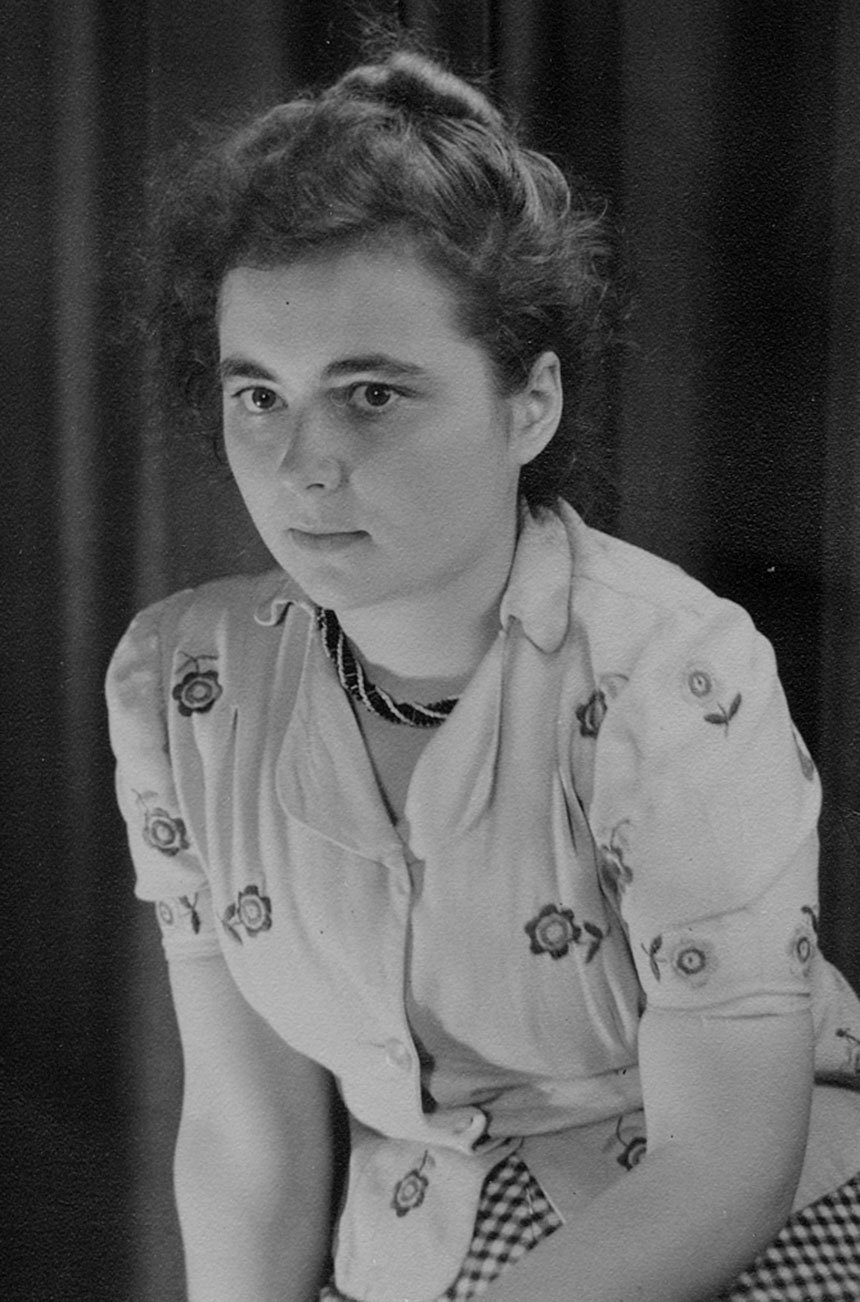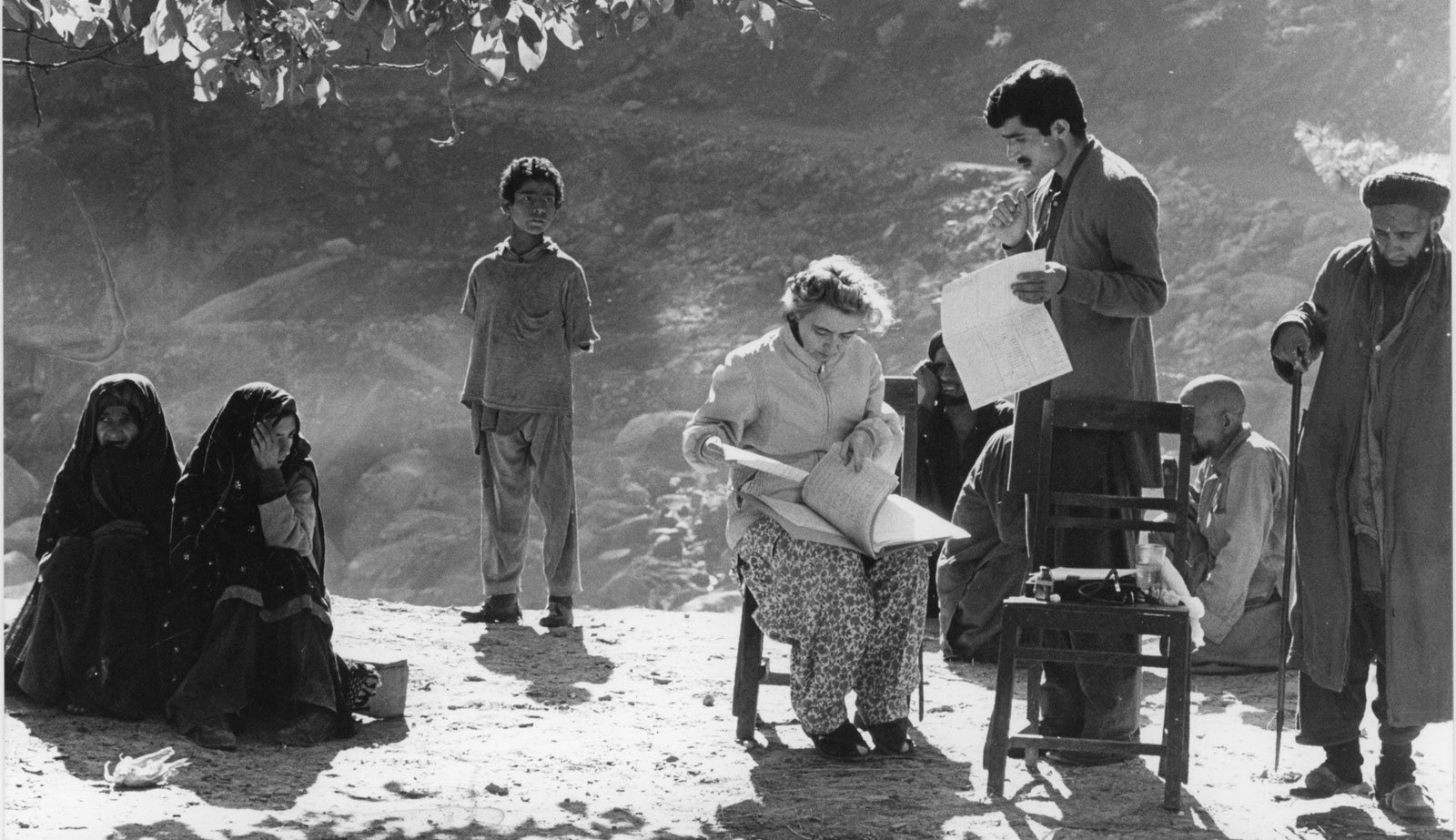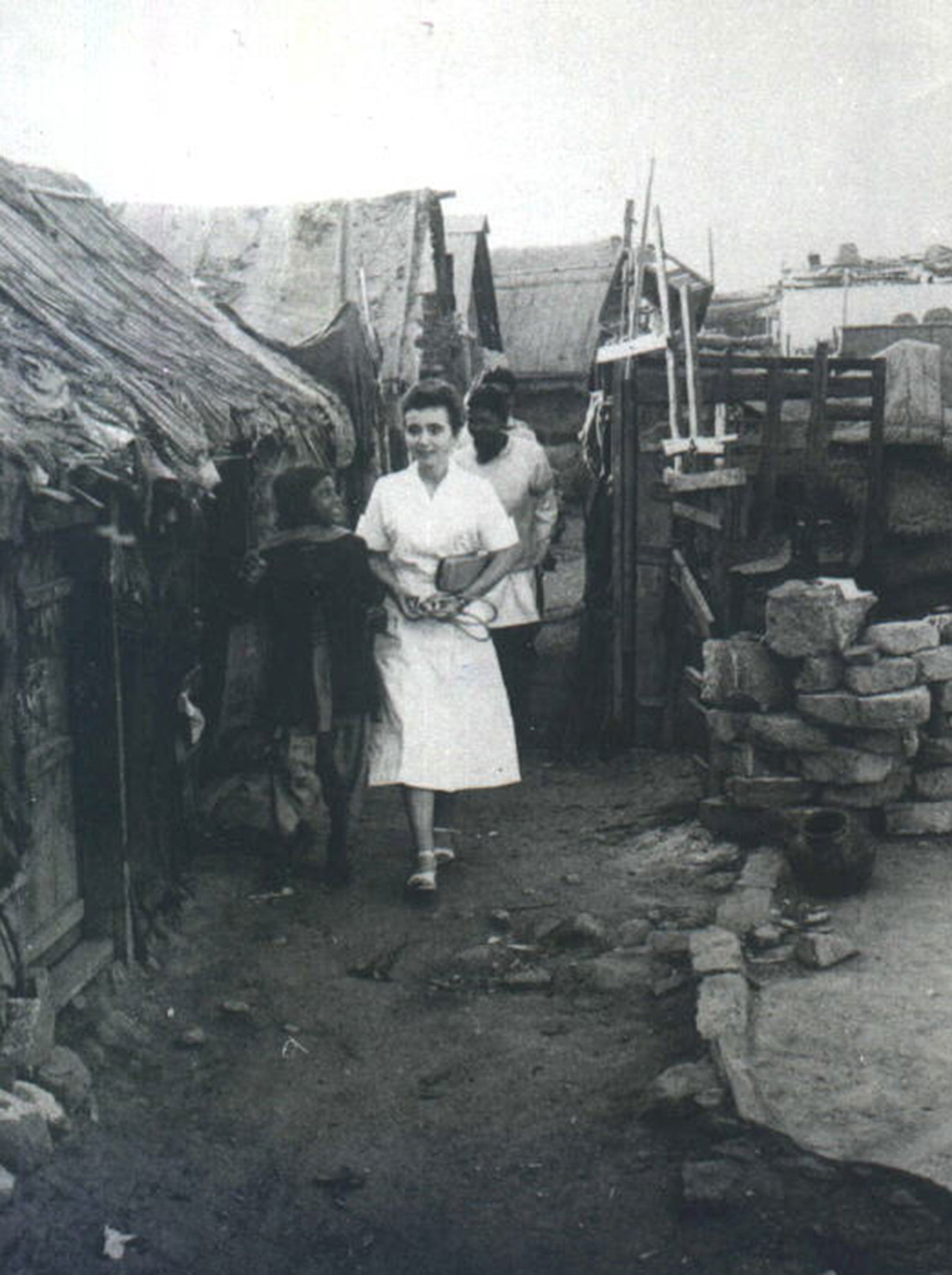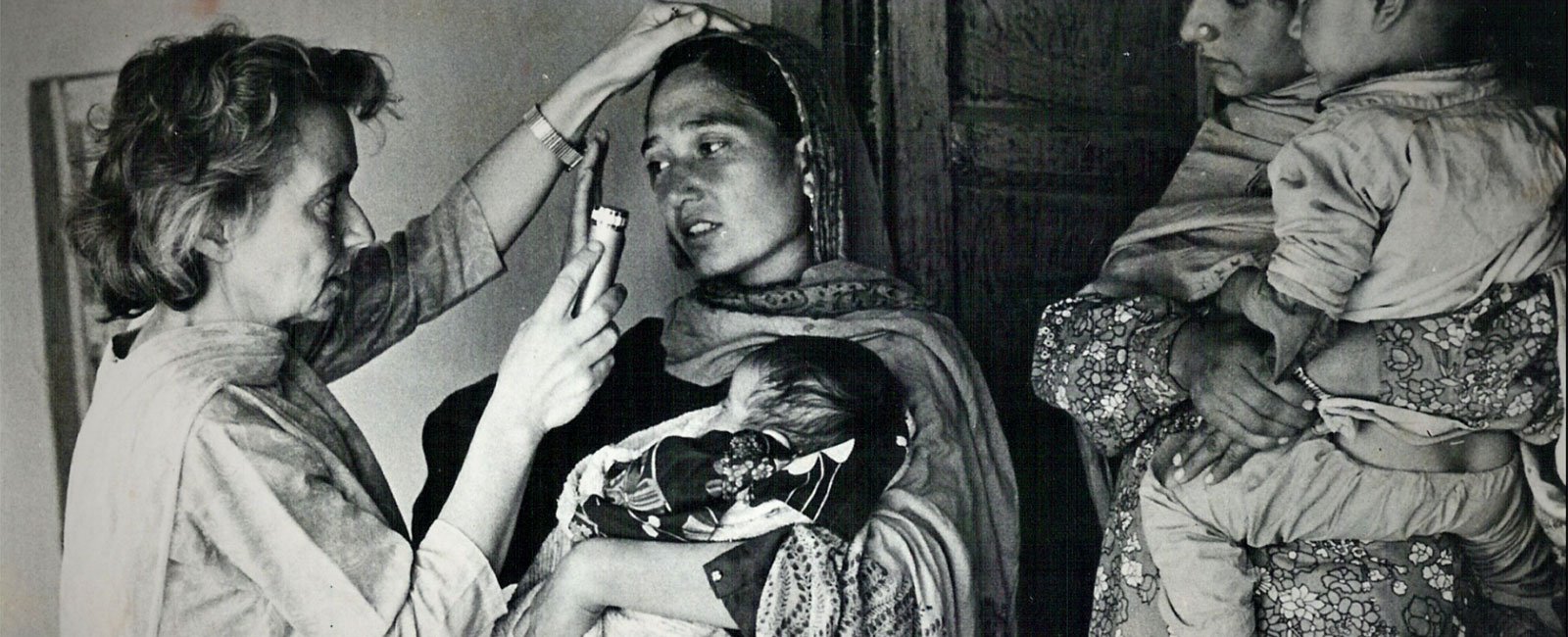Serving the unserved: Dr. Ruth Pfau, Pakistan's Mother Teresa
Remembering Dr Ruth Pfau, the humanitarian hero from Germany whose life-long struggle helped Pakistan defeat leprosy and eliminate social stigma associated with the disease

An ‘Alitalia' flight lands at Karachi airport, on a sunny afternoon of March 8, 1960. White skinned Europeans, coming all the way from Paris, start trickling out. One of them is Ruth Pfau, a thirty-year-old German novice, who has come here on her way to India.
Her small luggage is accompanied by the three vows she has taken during her one year novitiate at the convent of the 'Daughters of the Heart of Mary' in Paris. The vows of Poverty, Chastity, and Obedience.

Her order, founded by Marie Adelaide of France (1749-1818) during the French revolution, does not bind her to wear the traditional nun's habit or to live a life of seclusion. The commitment is to work against misery, wherever in the world.
Carrying a degree in Medicine from a university in Germany, she has received requests from both India and Pakistan to come and serve. She has acceded to the request from her community in Karachi, only in the hope of acquiring an Indian visa from here.
From the airport she is driven to the girl's hostel at Guru Mandir, at walking distance from the mausoleum of the Father of the Nation, Quaid-e-Azam Mohammad Ali Jinnah. On the way she has noticed the bougainvillea hedges along the roadside and mistaken them for roses. Attired in a warm winter coat, she finds the sweltering heat of tropical Karachi unbearable.
Exhausted by her long journey, she feels sick and hungry. But Mother Mary Doyle, the superior at the hostel, insists that she attend a prayer session before the meal. Her first day in Asia is grueling. The night is spent fighting the oppressive heat and the noise of a radio, blaring on the other side of the half-partitioned room. A drowsy Ruth finds Pakistan not to be a very hospitable land.
During the ensuing weeks, she finds herself tongue-tied and bored. The elementary English she had learnt at her school in East Germany stands forgotten. The smattering of French that she has picked up during her stay in Paris enables her to communicate with Berenice, a pharmacist from Mexico and, besides Ruth, the only non-American in the group. Berenice is fluent in French besides Spanish, which is her mother-tongue. It takes Ruth three weeks to revive her proficiency in spoken English. Then one day, Berenice invites her to come along to the ‘McLeod Road Lepers’ Colony', off Karachi's main commercial artery.
On this fateful day in 1960, Ruth Pfau decides to stay in Pakistan, to serve the ones unserved and whom no one else would ever serve.
—Excerpt taken from the book 'Serving the Unserved: A biography of Dr. Ruth Pfau’ by Zia Mutaher

From Paris to Karachi
At a time when leprosy affected people were stigmatised and treated with mere bandages, fate landed Dr Ruth Pfau in Pakistan.
“People would be shocked to see her touch leprosy patients as they were considered untouchable," recalled Nisar Malik, Media Manager at the Marie Adelaide Leprosy Centre in Karachi.
Born on 9th September, 1929 in Leipzig, Germany, Dr Ruth grew up seeing the horrors of the Second World War, during which her country was bombed and destroyed. When the war ended, the country had been divided into East and West Germany.
In 1948, at the age of 17, she somehow managed to cross the border into West Germany, where she pursued her education in medicine and graduated as a doctor in 1950.
Feeling unsatisfied and with a desire to do something more purposeful, she decided to dedicate the rest f her life to the poor people of the world.
When Dr Ruth left Germany in 1960, her organisation, Daughters of the Heart of Mary, had not expected her to stay for long in Pakistan. The organisation had decided to send Dr Ruth on an assignment to India, but due to visa constraints, she was advised to first go to Pakistan from where she could apply for a visa to the country of her intended destination.

But it so happened that Dr Ruth spent the rest of her life in Pakistan, a country she came to call home. Her remarkable service for the country helped contain leprosy in Pakistan.
As per the initial plan, Dr Ruth Pfau applied for an Indian visa during her initial stay in Pakistan. But it was her visit to a dispensary – a small hut on II Chundrigarh Road (then known as McLeod Road) where leprosy affected people were being treated with mere bandages – that made her change her mind.
It was at this dispensary that she met one of the thousands of Pakistani patients suffering from the disease.
“He must have been my age — I was at this time not yet 30 — and he crawled on hands and feet into this dispensary, acting as if this was quite normal,” she told the BBC in 2010, "as if someone has to crawl there through that slime and dirt on hands and feet, like a dog."
Stunned at the sight, Dr Ruth wrote to her organization, telling them that she was more needed in Pakistan and requesting for permission to stay in the country.
Upon being granted the permission, Dr Ruth laid the foundation of the first leprosy centre in Pakistan, the Marie Adelaide Leprosy Centre (MALC), only within three years of her arrival in the country.
However, since due to the mindset that considered lepers 'untouchables', the workers and medics working with Dr Ruth had to shift patients to the centre in the dark of the night.
Eventually, the existence of the centre came to the knowledge of locals, raised a hue and cry over lepers being kept in the same area they were residing in.
A case against the centre was filed at the High Court, but Pakistan was not sans support for philanthropy.
Dr Ruth was helped by Dr Zareena Fazalbai, who belonged to an influential family of the country and helped her fight the case for the centre.
Surviving to serve
Dr Ruth's work was not limited to helping patients in Karachi.
In a bid to expand the treatment process to other areas, she started off with educating medics in different parts of the country. Although Dr Ruth was not well-versed in Urdu, or any other language spoken in Pakistan, she would somehow manage to communicate with local residents and medics.
The leprosy healer even took to the streets to create awareness on the disease.
In 1968, she persuaded the Pakistani government to undertake a National Leprosy Control Programme in partnership with the MALC.
Soon, she and her team began setting up leprosy-control centres across the country, laying the foundations of similar institutions in Khyber Pakhtunkhwa, Balochistan and Gilgit-Baltistan in 1975, 1976 and 1984 respectively.
She travelled to the most remote and rugged corners of Pakistan by horseback, camelback, and by foot to trace patients with the disease.
Her hard work finally bore fruit in 1996, when the World Health Organisation declared Pakistan the first country in the Eastern Mediterranean Regional office region to have controlled leprosy.
Quiz: How well do you know Dr Ruth Pfau?
While the German medic was busy in her endeavors in Pakistan, her work was being recognised far and wide. She was awarded multiple awards in the USA, Australia, her home country Germany, and Pakistan.
Her awards include The Order of The Cross with Star from the German government, the Hilal-e-Imtiaz, Hilal-e-Pakistan, and the Nishan-e-Quaid-e-Azam from the Pakistani government, and the Magsaysay from the government of Philippines.
'Where the heart belongs'
Dr Ruth was even visited by Mother Teresa, who travelled from India to meet the philanthropist that had left her home and family for leprosy patients in Pakistan.
At present, 157 centres started by Dr Ruth are working in the country, according to Malik. Not only are the patients at these centres treated for leprosy, they are also looked after for other ailments.
Every year, between 400 and 500 patients are treated at Dr Ruth's centre. Currently, around 550 leprosy patients are under treatment at the hospital, while the number of overall registered patients is 57,700.
Until 2000, Dr Ruth would personally look after all the affairs of the centre, Malik said. But she retired from her position in 2002. Then onwards, she would go to Germany every year to collect funds for the foundation under which the centres are running, he added.
According to Malik, Dr Ruth would visit Germany every year until her family members were alive—she last visited her home country in 2012, after which doctors advised her to stop travelling such long distances due to her health.
Malik said Dr Ruth would say Germany was the place of her origin, but it was Pakistan where her heart belonged.
"Which is why," he added, "she wished to be buried in the country where her heart belonged."
—Reporting by Kashif Awan; Writing and editing by Zahidun Nisa and Sajjad Haider; Photographs courtesy the Mary Adelaide Leprosy Centre, Karachi





